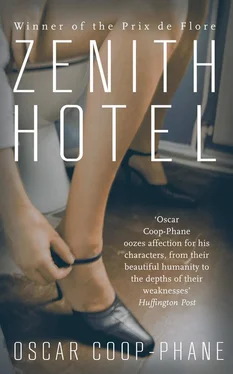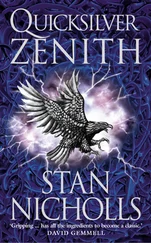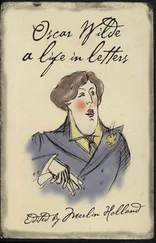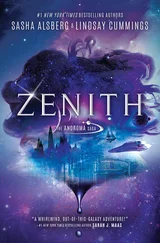The novel began something like this:
‘Have you ever noticed,’ he said, ‘how an empty cup on your table in a café looks perfectly natural if it’s yours, and dirty, disgusting even, if it was there when you sat down?’
It was a good idea to start with a real-life incident. But after that he was stuck. That was the end of his career as a scribbler.
He gave up on the idea. He sat on his wooden chair and waited for it to blow over.
Robert looks at himself from a distance. He smiles when he pictures himself a few months earlier, obsessed with the idea of being a man of letters, allowing his hair to grow, donning a cravat every morning. Yes, he has a good laugh when he thinks back on that phase. But he’s not ashamed, it feels as if it happened to someone else. That man can’t be him, that clownish scribbler with cufflinks and a rusty inkwell. No way can that be him. So let’s laugh at him because he really is ridiculous.
Robert is able to see himself from a great distance. That is a strength, but it’s also a trap. He doesn’t recognize himself at all. He sees himself rather in the way that people insist that the curly-headed little boy perched proudly on his tricycle, that little boy in the photograph you’re holding, is you, at Grandma’s, the summer you were five. You can’t be ashamed of him. Of the snot dripping from his nose, it doesn’t matter, it’s not really you. No memories of that tricycle ride in Grandma’s garden. All right, if you’re sure it’s me, I believe you. But that little boy doesn’t affect you. He’s cute, there’s snot dribbling from his nose. And then what? He’s only you because people say so.
That’s what Robert feels; he has no need of a photo or of a childhood. His own memories are alien to him.
~ ~ ~
Today, Robert has bought a new tree. He hasn’t named it yet. He certainly intends to find a name for it. We’ll see later, he thinks. Right now, he needs something to eat, his rumbling stomach is his main concern. He can’t do anything on an empty stomach. Some people can think more clearly when they’re hungry, but with him it’s the opposite. I’ll have a four-cheese pizza. Yes, to take away. That’s quick! Yes, of course, it’s because you’re Italian, how silly of me!
He eats his pizza at the little kitchen table and gradually his head fills with dwarf tree names. He’s made up his mind, it will be Billy the Kid. That sounds cool, as if he’d bought it in the USA. A little tree from Houston, Texas. A tree with cowboy boots and a gun. Now that is cool! The next one will be a Mexican, he’ll dress it in a little poncho and a big hat. Oh, his little trees are so lovely! If he looks after them well, they’ll outlive him. It’ll be his opus, his mark. But who will he leave his dwarf trees to? Who would be prepared to take them into their living room as if they were their own children, water them with a mineral-water spray and prune the superfluous little branches? Bah, he’ll find someone. For the time being, he’s looking after them, and he’s happy.
It’s his tender loving care that keeps them alive. They don’t grow, of course, but they are nourished by it. They drink Robert’s little attentions like their own sap, the blood that courses through their veins. It’s an image – Robert knows full well that they’re not people. That’s why he loves them, like an elderly spinster with her cats.
Robert doesn’t despise people. Most of the time, he forgives them excessively. It’s just that he doesn’t know how to relate to them. He’s a bit gauche, he’s unable to interest people or make them laugh. So he sits on his wooden chair and waits patiently, as always.
But what is he waiting for? He doesn’t know, it feels like a void to be plugged. Which stopper should he use? He’d have been extremely grateful if only someone had helped him, told him what to do. But there you go, no one had ever been there for him. Robert had built himself, like a slightly wobbly house. The foundations aren’t very stable, the roof’s falling in, he is less and less able to withstand the assaults of the wind and rain. One day, he’ll collapse. All those tiles crumbling will be like a rock fall. There’ll be nothing left but the bare rafters, intersecting beams that no longer support anything. A ruined Robert, his carcass naked like a common laboratory skeleton. Medical students will stick a cigar in his jaw, they’ll make him give the two-fingered salute and arrange his pelvis in a suggestive posture. It’s understandable, it’s not a person they’ll be seeing, only a frame, an assembly of bones placed end to end, a human-sized jigsaw puzzle whose pieces have complicated Latin names that you have to learn if you want to pass your exams. He’ll give those cheeky students grief. He’ll be called Oscar and wear a bowler hat.
He retains all that in his yellow foam.
He has moved the little wooden chair over to the window. There’s a man on the other side of the street. He’s leaning against the railings in his shirtsleeves, smoking. He doesn’t really seem to be paying attention to what’s happening around him. He’s not interested in the goings-on of the street. He smokes. He’s thinking of something important. He scratches his head. Is his wife cheating on him? His mother dying? Have his shares taken a nose-dive? It must be something of the sort, he looks very anxious.
Robert watches the man at the same time as drinking in the life of the street. The stallholders shout the prices of vegetables and fish. Women walk about, leeks poking out of their shopping baskets. They’re getting in provisions, as people used to say during the war. When Robert thinks about it fleetingly, he’d quite like a war. He imagines himself as a Resistance fighter, shooting at the enemy from high up in his apartment. Concealed behind the window, holding a rifle with telescopic sight. Unimaginable bravery defending his little trees. But it’s peacetime, he’s not exactly going to take pot shots at housewives with shopping caddies. So he watches them and tries to guess what they’ll be cooking for lunch. What can you make with leeks and a baguette?
From time to time, he spots a bottle of red poking out of a basket. The sound of the cork popping before lunch. He crooks his finger and makes a popping sound in his cheek. Pop. Pop. Another bottle that’ll course through our veins. We need to forget for a while, we need to get drunk when we’ve got nothing better to do. It’s the fruit of our land that we’re drinking. Pop. The bottle neck clinks against the sides of the glasses. It can’t be bad, we say to your good health before drinking. We don’t say cirrhosis or alcoholism, no, we say to your good health, so come on, let’s have a drink to celebrate! After all, what’s the problem? We drown our sorrows where we please.
~ ~ ~
The bustling street makes him restless. All those housewives out and about, all those cars, all those kids on scooters. Go out, that’s a good idea. Slip on a jacket, it’s not cold today. This one will do. Close the window. Mustn’t forget my keys, whatever happens. In my pocket. Cell phone. No one will call but take it anyway. Also in my pocket. There, I’m ready. Oh yes, shoes. Quick, the fresh air’s calling. Shoelaces. Faster, for Chrissakes! Get out. Get out. Escape from the daily gloom, walk through the streets of the 14th arrondissement . A little expedition on foot. Dogs, passing women, mopeds.
How about taking the métro?
‘What are you going to do?’
‘I don’t know, sweetheart!’ (Laughter) ‘You’re the boss.’
‘Can I ask for anything I want?’
‘If you’ve got the money. As far as I’m concerned, you know…’
Читать дальше












